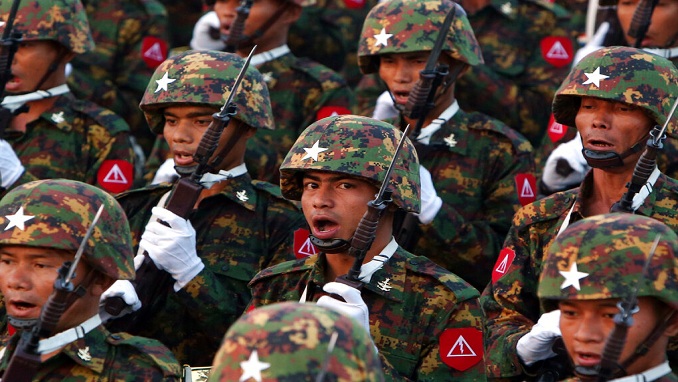The military government that seized power in Myanmar will get along well with its authoritarian neighbor China in the long term, despite historical misgivings, and grow closer if international sanctions isolate the Southeast Asian state from Western powers, observers say, Voice of America reported.
Myanmar’s military took control of the country Monday and declared a year-long state of emergency. Civilian de facto head of state Aung San Suu Kyi, a Nobel laureate, was detained in the power shift, prompting condemnation from Western governments.
China might fumble at first to work with the new Myanmar leader, Min Aung Hlaing, because the military resents China’s involvement in a now suspended hydropower dam, cross-border shipments of Myanmar’s natural gas and other influence over the economy in the past 20 years, said Thitinan Pongsudhirak, a political science professor at Bangkok’s Chulalongkorn University.
The professor said the two sides will eventually move forward because, unlike leaders in the West, China’s communist government feels no domestic pressure to condemn another authoritarian state.
“China is an all-weather friend, and you can see that when countries take an authoritarian turn, like Myanmar just did this week,” he said. “It’s to China’s advantage because China does not have the democratic trappings and conditions on domestic governance, so it can be any kind of regime and it’s fine with China.”
In Beijing, Chinese foreign ministry spokesman Wang Wenbin said Monday his government was still trying to understand the “situation” in Myanmar. China is Myanmar’s “friendly neighbor,” Wang said as quoted on the ministry website, and “we hope all parties in Myanmar can settle disputes and maintain social and political stability by using the constitution and the laws.”
The military takeover stemmed from November’s parliamentary elections. The then-ruling National League for Democracy won in a landslide over the military-backed Union Solidarity and Development Party. The military, which ran Myanmar for nearly 50 years before the first democratic government emerged after 2011 under Aung San Suu Kyi, raised accusations of voter fraud.
China and Myanmar fundamentally got along before the recent events, though Myanmar was pursuing stronger ties with Japan and the West at the same time to offset Chinese influence.
On Monday, U.S. President Joe Biden vowed to take “appropriate action” and review possible sanctions against Myanmar. Australia, Britain, the European Union, India, Japan and Singapore have aired their own concerns this week about the stability of the Southeast Asian country.
